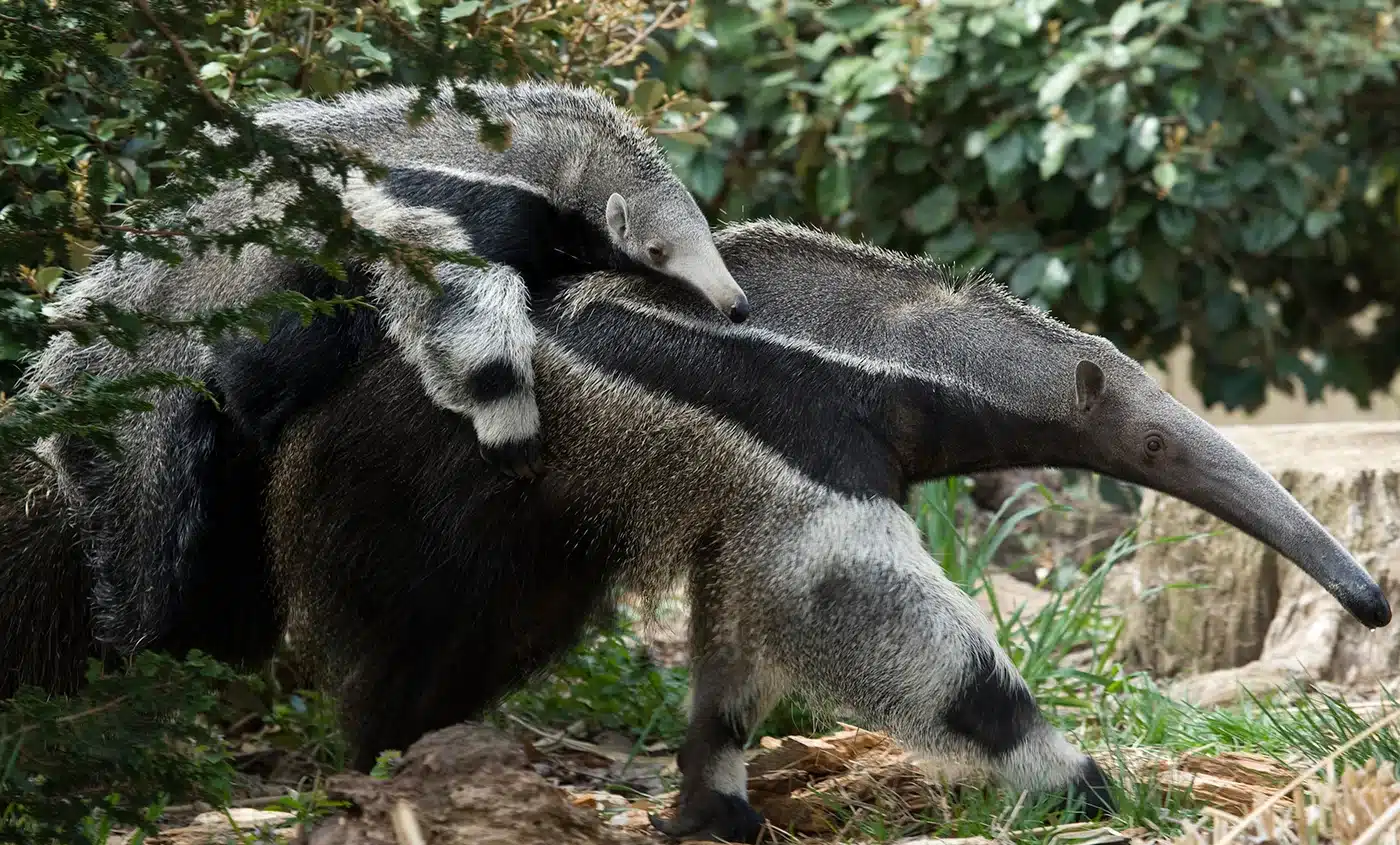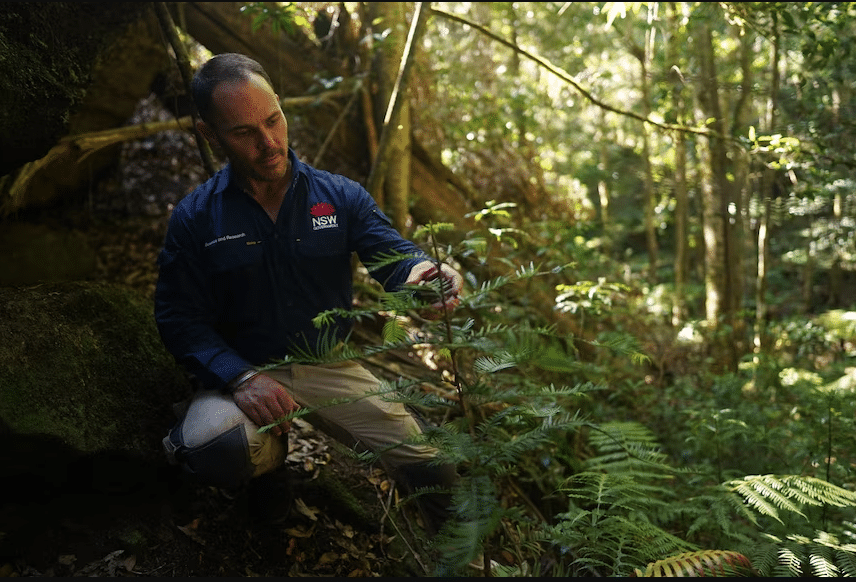Wondering what went right this week in the conservation world? We’ve got you covered with our Conservation Optimism Round-Up! We are collating stories of optimism from around the globe so that you never miss your dose of weekly motivation.
(Featured image credit: Smithsonian’s National Zoo and Conservation Biology Institute)
1. African elephant populations stabilise in southern heartlands
The news comes “after huge losses over the last century, according to the most comprehensive analysis of growth rates to date.”
“For decades, news from southern Africa was dominated by waves of poaching and other threats,” said Dr Robert Guldemond at the University of Pretoria, South Africa, and part of the study team. “But there’s been a lot of good work done that has basically turned the tide and that story has never really been told.”
Thanks to #conservation efforts, the decline of #African #Elephant has been reversed with the most stable populations being found in large, well-protected lands connected to buffer areas!#conservationoptimism #LetNatureThrive https://t.co/wTm9kAheKg
— Global Conservation Solutions (@_GCS_) February 8, 2024
2. Research shows new transboundary conservation areas (TBCAs) across Africa
“New research has mapped existing and potential transboundary conservation areas (TBCAs) across Africa,” revealing at least 27 existing TBCAs and 8,481 potential ones. According to the UN Environment Programme (UNEP), these areas “are cross-border, cooperatively managed conservation areas (…) They are essential tools for nature conservation and safeguarding ecological integrity, enabling the uninhibited movement of species between countries, as well as promoting peacekeeping between countries.”
In a recent study, conservation experts mapped a potential of 8,481 transboundary conservation areas (TBCAs) in Africa - which could cover an area equivalent to the size of Mexico! 🌿‼️
— UN Biodiversity (@UNBiodiversity) February 11, 2024
Learn more about TBCA and its potential➡️ https://t.co/5Ws75jENzY #ForNature @unepwcmc
3. Giant anteater seen in southern Brazil for the first time in more than 100 years
“Wildlife camera traps have recorded footage of a giant anteater (Myrmecophaga tridactyla) wandering through scrubland in Espinilho State Park in Rio Grande do Sul, Brazil.
It is the first time since the 1890s that this large mammal has been seen in the south-west of Rio Grande do Sul state. Experts think the anteater came from Iberá, where a major rewilding project has been underway since 2007.”
It's the first time since the 1890s that this mammal has been seen in the south-west of Rio Grande do Sul state. Experts think the anteater came from Iberá, where a major rewilding project has been underway since 2007. https://t.co/THhLjdS3Tt #rewilding #conservationoptimism
— Citizen Zoo (@CitizenZoo) February 7, 2024
4. Survey reveals widespread support towards rewilding in the Oder Delta
“A new study, involving online surveys of over 2000 people across Poland and Germany, has found that the majority of participants favour the return of large carnivores and herbivores – such as grey wolves and Eurasian elk – in the cross-border Oder Delta region.”
“A willingness to pay for scenarios in which large animal species were present in the delta was almost three times larger than for restoring natural elements of the landscape. “To find such a preference was surprising given the often-negative portrayal of large animal species, notably the wolf, in the popular media,” says Rowan Dunn-Capper. “It suggests the public in Germany and Poland may be more supportive of wildlife return in the delta than first thought.”
🌿 An extensive study by @idiv and @UniHalle, spanning Germany and Poland, has unveiled widespread support for #rewilding and #WildlifeComeback in the beautiful #OderDelta region! 🌊🌳
— Rewilding Europe (@RewildingEurope) February 10, 2024
Learn more about the results and the ongoing efforts of @DeltaOder 👇https://t.co/E4Z1ryFqqy
5. The dinosaur tree once thought to be extinct, and the secret mission to bring it back
“The Wollemi Pine thrived 91 million years ago, when dinosaurs roamed the earth. It was thought to have gone extinct two million years ago, until 1994, when an off-duty park ranger stumbled across a grove of these prehistoric giants. There are less than 90 Wollemi Pines remaining in that single grove west of Sydney. No more have been found in the wild since.”
From the report by ABC News Australia, “[A] translocation site was established in 2019 and more than 300 Wollemi Pines have been strategically placed among the thick bush. Just like the original grove, the whereabouts of the translocation sites are kept top secret.”
Image Credit: ABC News – Shaun Kingma
6. White Storks reintroduced to the UK for the first time in centuries
“The birds are traditionally associated with fertility and good luck – but haven’t been bred in Britain since the 15th century – but they have found a new home at the Knepp Estate in recent years.” Experts are aiming for a goal of 50 breeding pairs across the South of England by 2030. Those interested may also track the storks’ migration from Sussex to Africa through an online map.
Researchers and the public will be able to watch the storks as they make their way from Sussex to southern Europe and northern Africa and back, using a live map on Knepp's website. https://t.co/JfNg6JUC9H #rewilding
— Citizen Zoo (@CitizenZoo) February 8, 2024
7. Celebrating #ReverseTheRedDay with conservation success stories around the world
On February 7th, organizations and conservationists around the world celebrated the protection of endangered species on the IUCN Red List.
“Securing a future for species depends on the focused efforts of many organizations, stakeholders, and local communities working together. Conservation success is often gained by the combined progress of localised actions. These case studies narrate some of those collaborative and localised efforts, working to Reverse the Red around the globe.”
Check out the hashtag #ReverseTheRedDay or visit the official Reverse the Red website to see stories from all over the world about amazing wildlife and the people dedicated to protecting them!
Happy #ReverseTheRedDay! Today is a day to celebrate #conservation success from around the world as zoos, aquariums, botanic gardens, nonprofit organisations, civil society partners, and communities take action to protect #biodiversity.@reversethered1 pic.twitter.com/v3zSxFNieY
— IUCN (@IUCN) February 7, 2024



